Professional, peer-reviewed papers about Ancient Egypt from the perspective of biblical chronology and the founding of nations after Babel.

Biblical Radiocarbon Dating the Minoan Eruption to the Exodus
Marshall Jordan • June 11, 2025
Biblical recalibration of the radiocarbon ages of ancient carbons associated with the Minoan Eruption supports the idea that this major volcanic event occurred at the time of the Exodus in 1446 BC.

The Hyksos— Does the Bible Shed Light on Who They Were?
Troy Lacey • Feb. 26, 2025
An interesting idea has been developed in recent decades that connects the Hyksos with the Bible’s Exodus account.
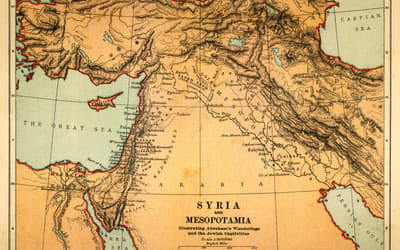
Chronological Framework of Ancient History. 6: The Old and Middle Kingdoms of Egypt
Kenneth C. Griffith , et. al. • Jan. 22, 2025
Reconciling Egyptian history with the Bible’s chronology using all available historical sources.

Chronological Framework of Ancient History: Parts 1–5. Reply
Kenneth C. Griffith , et. al. • Oct. 2, 2024
The authors of the series, “Chronological Framework of Ancient History” respond to critiques.

Chronological Framework of Ancient History. Papers 1–5. Comments
Eric J. Tweedy • Oct. 2, 2024
The author calls some of the conclusions in an earlier series, “Chronological Framework of Ancient History,” into question.

The XIIIth Dynasty of Egypt and the Exodus
A. John M. Osgood • Sept. 18, 2024
This discussion presents a new arrangement, a different model of the XIIIth Dynasty for discussion.

Chronological Framework of Ancient History. Papers 1–5: Response
Kenneth C. Griffith , et. al. • Aug. 7, 2024
Griffith and White respond to Habermehl’s criticisms by demonstrating a model that integrates geological, archaeological, and historical records with the Ussher-Jones Chronology.

Chronological Framework of Ancient History. Papers 1–5: Comments
Anne Habermehl • Aug. 7, 2024
Anne Habermehl claims that the Griffith and White’s series, Chronological Framework of Ancient History, reinforces the longer Septuagint timeline.

The Place of Dynasty VI and of the Exodus in Egyptian History: Further Comments
A. John M. Osgood • June 26, 2024
A recent paper by Robert M. Porter (2022) demands a reasonable reply. Pottery and archaeological stratigraphy in no way contradict a partial overlap of Dynasty 6 and Dynasty 12 in Egyptian history.

A Biblical Timescale for Radiocarbon Dating
Marshall Jordan • May 29, 2024
The low content of C-14 in fossil fuels implies that the atmospheric C-14 level in the pre-Flood world was less than 1% of today’s level, in contrast to the uniformitarian assumption.

The Place of the Exodus in Egyptian History: Further Comments
Anne Habermehl • March 13, 2024
In this second of a three-part series, Habermehl further discusses the placement of the Exodus in Egyptian history and methodology.

“Chronological Framework of Ancient History”: Reply
Kenneth C. Griffith , et. al. • Jan. 24, 2024
While we will answer the objections to our 2022 and 2023 papers here in a cursory manner, most of them will be thoroughly handled in the appropriate papers in the series.

“Chronological Framework of Ancient History”: Comments 2
Robert M. Porter • Jan. 24, 2024
This paper asserts that it is not possible to run the Egyptian Old and Middle Kingdoms in parallel and that the date of the Trojan War is not necessarily that provided by ancient Greek historians.

“Chronological Framework of Ancient History”: Comments 1
A. John M. Osgood • Jan. 24, 2024
This paper maintains that we all want a good correlation of the archaeological record with the Bible, but Griffth and White’s ARJ papers of 2022–3 are not the way to achieve it.

Chronological Framework of Ancient History. 5: The Babylonian Dynasties of Berossus
Kenneth C. Griffith , et. al. • Dec. 20, 2023
The Babylonian dynasties of Berossus are incomplete. The authors solve for the missing values. The resulting table of Berossus covers the era from the Flood to the conquest of Babylon by Cyrus.
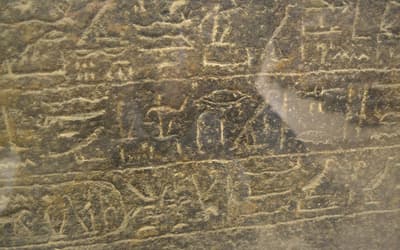
Synchronization of the Biblical and Egyptian Timelines
Anne Habermehl • Nov. 8, 2023
In this paper we will show that the biblical and Egyptian chronologies produce timelines that diverge greatly back before about 600 B.C.

Chronological Framework of Ancient History. 3: Anchor Points of Ancient History
Kenneth C. Griffith , et. al. • March 22, 2023
Having triangulated the dates for Babel and the Dispersion in the previous paper the authors triangulate the dates for 27 major events in ancient history.

Chronological Framework of Ancient History. 1: Problem, Data, and Methodology
Kenneth C. Griffith , et. al. • Nov. 16, 2022
This series of papers makes the case that a broad consensus of ancient sources speaks in harmony with Ussher’s chronology of the Bible.

The Place of the Exodus in Egyptian History: Reply # 2
A. John M. Osgood • May 25, 2022
Many agree that biblical chronology is basic to understanding the history of Egypt. However, my placement of the Exodus at 1446 BC has been misunderstood.

The Place of the Exodus in Egyptian History: Reply # 1
Robert M. Porter • May 25, 2022
It is impossible to run Dynasty 6 of the Old Kingdom in parallel with Dynasty 12 of the Middle Kingdom as some Christian chronologers claim.

The Place of the Exodus in Egyptian History: Comments 2
Anne Habermehl • May 25, 2022
Placing the Exodus at the end of the Old Kingdom of Egypt fits with the biblical narrative, Egyptian history, and the Conquest that followed 40 years later.

The Place of the Exodus in Egyptian History: Comments 1
A. John M. Osgood • March 2, 2022
The Egyptian king lists have been arranged sequentially as was common in the ancient world, but they often were listing parallel and with overlapping dynasties.
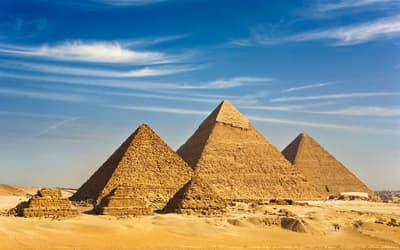
The Place of the Exodus in Egyptian History
Robert M. Porter • Feb. 16, 2022
Egyptian history will be explored, looking for potential shortenings, with a view to putting the Exodus at the end of the Old Kingdom, a time when Egypt collapsed.
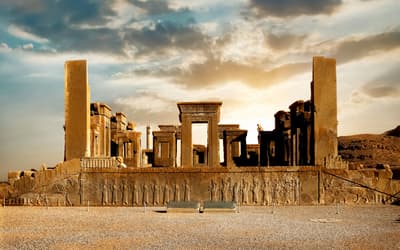
Refuting Challenges to the Accepted Chronology of Achaemenid Empire
Kenneth C. Griffith , et. al. • March 31, 2021
This paper examines the chronology of the Neo-Babylonian and Achaemenid Empires and weighs Martin Anstey’s claim that 82 years of history was fabricated.
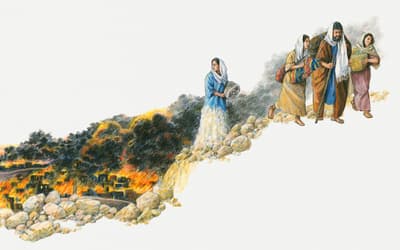
Biblical Problems with Identifying Tall el-Hammam as Sodom
Simon Turpin • March 10, 2021
A number of evangelical archaeologists and biblical scholars have concluded that the best candidate to date for biblical Sodom is to be found north-east of the Dead Sea at Tall el-Hammam.
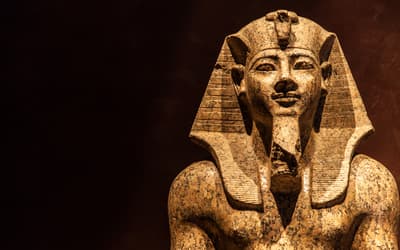
Rameses III and Tel Lachish—A Test Case For the Egyptian Chronology of David Down
Gregory Iocco • July 29, 2020
Remains at Tel Lachish show a stratigraphy that discredits Velikovsky’s theory concerning Rameses III and invalidates the framework of Down’s revised Egyptian chronology.
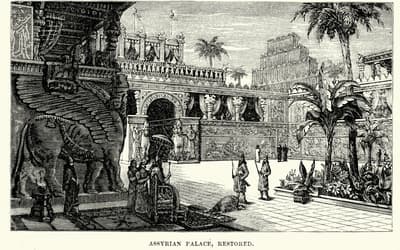
Blessed Be Assyria
Gregory D. Cook • Dec. 14, 2016
Judgment in Nahum follows the pattern of Babel. God would come down, incapacitate a rebellion, and scatter rebels. This contradicts a widely-held belief.

Worldview Bias and the Origin of Hebrew Worship
Scott Aniol • July 15, 2015
Secularists claim that similarities between Israel’s worship and that of other nations in the OT prove Israel’s worship was rooted in its neighbors religion.

An Analysis of the Dodwell Hypothesis
Dr. Danny R. Faulkner • May 15, 2013
Danny R. Faulkner, AiG–U.S., examines the Dodwell hypothesis, that the earth underwent a catastrophic impact in 2345 BC that altered its axial tilt and then gradually recovered by about 1850.

Ancient Egyptian Chronology and the Book of Genesis
Matt McClellan • Aug. 24, 2011
This paper will look at the different possibilities that can be constructed concerning how long each dynasty lasted and how they relate to the biblical dates of the Flood, Tower, and Patriarchs.
Ancient Egypt on Answers Research Journal
The origin of Egyptian civilization and the long sequence of its iconic rulers–the pharaohs–has both fascinated and challenged biblical scholars. The Bible names a grandson of Noah as the patriarch of the Egyptian people (Genesis 10:6, 13; 50:11). In contrast, conventional scholarship calculates the beginning of Egypt’s kingdom to c. 3000 BC, following a lengthy period of early settlement in the Nile valley. This traditional version of Egyptian history far exceeds the biblical date for the Genesis Flood and the repopulation of the earth by Noah’s descendants after Babel.
The focus of these papers in Answers Research Journal (ARJ) is to align Egyptian chronology with Old Testament history. These professional, peer-reviewed papers challenge reconstructions of Egypt’s history that extend beyond the human dispersion from Babel. They present alternate models that fit within the biblical framework and critique or revise models that fail to align with either the Bible’s narrative or extrabiblical evidence from the ancient world. Our journal considers the sequence of Egyptian history through the disciplines of biblical scholarship, geology, archaeology, Egyptology, and more.
The kingdom of Egypt features repeatedly in the Bible’s account, beginning with Abraham’s visit there, recorded in Genesis 12:10. Key events in biblical history, like Joseph’s seven-year famine (Genesis 41–47), the Exodus under Moses (Exodus 1–14), and the plundering of Solomon’s Temple by Pharaoh Shishak (1 Kings 14:25-26; 2 Chronicles 12:1–9), are all points where the biblical narrative interweaves with Egyptian history. Discussions about these and other synchronisms are vital for correctly aligning the sequence of Egypt’s pharaohs and for establishing a plausible reconstruction of Egyptian history consistent with a post-Babel origin.
